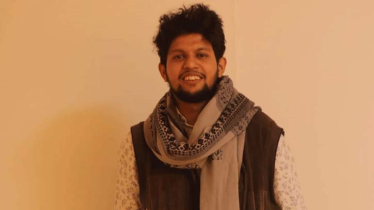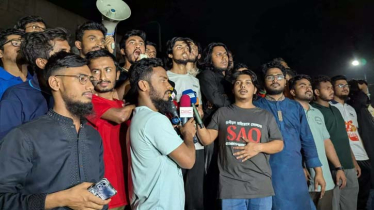
Photo: Collected
Despite surveillance being a global practice, it is often conducted with accountability in mind. However, in Bangladesh, the past Awami League government used surveillance to maintain power and suppress dissent. Rather than shutting down the agencies involved in such activities, it is crucial to bring them under legal frameworks and accountability.
These concerns were raised on Saturday, August 24, at a citizen dialogue organized by "Civil Reform Group-Bangladesh 2.0" at the office of the Bangladesh Association of Software and Information Services (BASIS) in Karwan Bazar, Dhaka.
Fahim Mashroor, coordinator of the organizing body and former BASIS president, began the discussion by presenting on privacy rights and the legal aspects of state surveillance.
Transparency International Bangladesh (TIB) Executive Director Iftekharuzzaman stated that the surveillance-based state structure is rooted in a desire to cling to power. He noted that no institution is free from political influence, and eavesdropping has been used to suppress dissenting voices.
Questioning the need for institutions like the National Telecommunication Monitoring Center (NTMC) and the Department of Telecommunications, Iftekharuzzaman warned that without moving away from a culture of using surveillance to retain power, future administrations will face similar outcomes. He advocated for a comprehensive restructuring of the system.
Professor B. M. Mainul Hossain of Dhaka University's Institute of Information Technology highlighted that surveillance for investigation and national security is a global practice, but it should be done within legal frameworks. He emphasized the need for regular audits of such activities, including protocols on who has access to data and who grants permissions. He argued against shutting down agencies like NTMC, suggesting instead a change in procedures.
Sara Hossain, honorary executive director of the Bangladesh Legal Aid and Services Trust (BLAST), stressed the need for a discussion on the process and methods of surveillance, considering international standards.
Writer and political analyst Zahed Ur Rahman linked the surveillance practices to authoritarianism, accusing the Awami League government of regressing the country and enacting laws that enslave the populace.
Junaid Saki, chief coordinator of the Ganasamhati Andolon, called for a white paper on surveillance, demanding accountability for those involved in eavesdropping during past administrations.
Joining online, journalist Julkar Nain Sayar Khan noted that surveillance happens globally, but not in a way that disrupts citizens' lives. In Bangladesh, however, he criticized the practices as deplorable.
The dialogue, moderated by Fahim Mashroor, also featured inputs from sustainable development writer Faiz Ahmed Tayyab, journalists Golam Mortoza and Ashraf Kaiser, executive director of Tech Global Institute Sabhanaz Rashid, lawyer Miti Sanjana, president of Bangladesh Mobile Phone Consumers' Association Mohiuddin Ahmed, and IT expert Zakaria Swapan.
Messenger/Shahed








